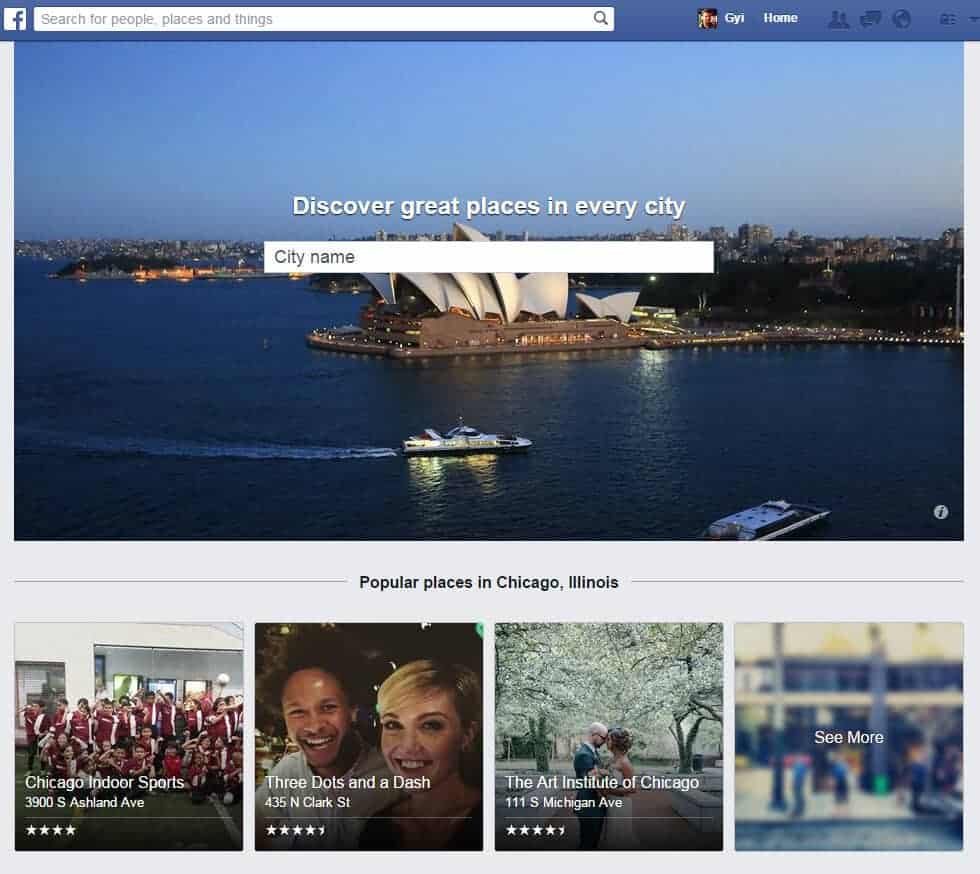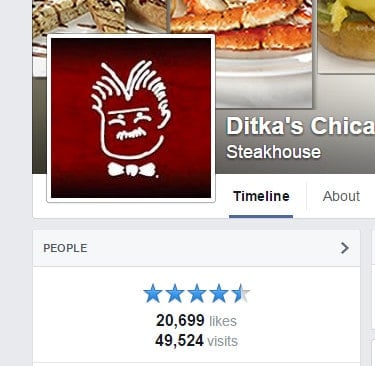Last week I was in Dallas talking local search and social media. The gist of that talk was that social media can be a powerful tool for improving local search ranking factors. You can reviews the slides here:
Admittedly, without the talk or a transcript, the slides are a bit tough to follow. So, I thought I'd elaborate.
"The essence of social media is really a public conversation with your customers and prospective customers..."
I really like viewing social media from this perspective. Obviously, this doesn't encapsulate all of the ways that we use social media. But from a local business perspective, it is critically important.
More and more people are turning to the web to talk about the products and services that they use.
If you think about it, local search is also a public conversation with clients and prospective clients.
In my deck, I used Primo's Pizza, a popular pizza joint from my hometown of Birmingham, MI.
A search for primo's pizza birmingham demonstrates what I'm talking about. The SERP prominently displays reviews of Primo's on Google Plus and Yelp. As you probably know, business owners can (and often should) participate in online discussions with customers and potential customers. This is essentially social media in a local search context.
And if you've been tracking recent changes by Google, you probably have recognized the increasing importance they seem to giving to ratings. After all, when you're looking for a local business, don't you regularly compare by ratings and reviews?
SEOs tend to celebrate #1 rankings in local SERPs. In the example from the deck, I illustrated how Pizza Hut holds the top spot for a search for pizza. However, in the new Google results, more users will likely be compelled to filter ratings. When I filtered the pizza results by 4.0+ rating, Pizza Hut, the unfiltered #1, is nowhere to be found.

Local SEOs tend to focus on getting name, address and phone (NAP) information right across the web. Now don't get me wrong, this is extremely important. But it's also really just table stakes. Consistent NAP is not a substitute for delivering an exceptional client / customer experience.
In fact, getting your local SEO citations right, but creating poor client / customer experiences is actually a recipe for disaster. It's a sure-fire way to get negative reviews to the top search results!
Another part of my talk was aimed at whether or not social signals are direct search ranking factors.
There's no shortage of correlation studies that seem to indicate that search might be taking some social signals into account in ranking results. However, to me, it doesn't really matter whether they're direct ranking signals or not. As AJ Kohn puts it:
"It's not the actual social activity that matters, but what happens as a result of that activity."
Turning to Moz's Local Search Ranking Factors survey, we can begin to make the connections between social media and local search in the post-pigeon world.
If you've reviewed the survey, you may have noticed that the importance of one factor seems to have increased more than many of the others: Domain Authority.
In a nutshell, Moz calculates domain authority by combining all of their other link metrics. This is part of the reason why big directory sites seem to have gained such an advantage after Pigeon.
Looking at domain authority through the lens of local SEO and social media, it's reasonable to conclude:

"The essence of domain authority is really a public conversation with your customers, prospective customers and other people."
Oversimplified: People talk about you. For better and worse, those conversations spread. In some instances, they motivate people to link to your pages. Links seem to have gained importance as they relate to local search ranking factors.
Next I turned to a few good examples of law firms that created local content, got it in front of local audiences on social media and earned links.
Finally, I spent a little time chatting about the future of social and local with particular attention paid to Facebook Places.

Facebook Places has the advantage of users. More specifically, users that are regularly engaging with one another socially. Needless to say, Facebook has more users than, say for example Yelp. But the more important difference is that, for many folks, Yelp users are strangers. Alternatively, Facebook users tend to be people who they know. Does this give Facebook a leg-up in the social-local game? I think so.
One of the critiques that I often hear is the "I don't use Facebook for that." So, are people actually using Facebook to review and rate businesses? They are for Da Coach:

Facebook recognizes the inextricably intertwined nature of the local-social web. If you serve clients or customers at a local level, it would be foolish to ignore how social networks impact your local visibility in search engines and around the web.

Over the years, law firm prospects have sent us reports from just about all of our competitors. Unfortunately, even today, some law firm marketing agencies still mislead their clients via "reporting." One particularly egregious example comes in the form of ranking reports. Which prompted this LinkedIn post. To my surprise, I received a lot of […]
John Wanamaker supposedly said "Half the money I spend on advertising is wasted; the trouble is I don't know which half." In an an effort to figure out "what half is working," attribution was born. Coupled with a transition from traditional, offline ads to digital media, attribution became the holy grail for analyzing advertising spends. But […]
I recently asked ChatGPT, "What are some of the top personal injury law firms in Chicago?? Actually, first I ask "who are some of the top personal injury lawyers in Chicago?" ChatGPT couldn't handle that one, so I modified the prompt. ChatGPT listed five very well-known firms downtown. Can you guess the other four? That's […]
If you're like me, you have some degree of AI, ChatGBT, Bard, exhaustion. Now don't get me wrong, this is stuff is remarkable and is changing, well, a lot. But before you hook up the ChatGPT API to your WordPress API and crank out 10,000 pages, here are a few things to think about. Let's […]
If you know me, you know my opinions about links and SEO advice from Google. If you don't, here's the TL;DR: Meh, links! Meaning, all things being equal, links still remain a competitive difference maker for ranking. Take Google's SEO advice with several grains of salt. Google has no economic incentive to help your site […]
The best marketing advice I can give you is to be authentic. Of course, you don't find that very helpful in terms of meeting your growth goals. So, you might decide to game the system. As I'm writing this, one of the more popular ways to gain the system is to pay for engagement. This […]
The following post was written by ChatGPT. ChatGPT, developed by OpenAI, is a state-of-the-art language model that can generate human-like text based on a given prompt or context. This technology has the potential to revolutionize the way that businesses, including law firms, market themselves to potential clients. One way that a law firm could use […]
How long does SEO take? When can I expect to see results? What results should I expect to see? These are all reasonable questions that we field from lawyers every day. And, like many legal answers, the answer is: It depends. Yes, I know that's not the answer you wanted. But it's the most honest […]
And how much time should they spend doing it? I recently had the privilege of chatting with Tyson, Jim, and Conrad for an upcoming episode of The Maximum Lawyer Podcast. If you're not familiar with The Maximum Lawyer community, you should definitely check it out. Jim asked a really great question about who should do […]
[…] Must Read: http://attorneysy3dev.wpengine.com/blog/social-media-local-seo-visibility/ […]
makes sense - thanks for sharing Gyi 🙂